MercoPress. South Atlantic News Agency
United States
-
Saturday, November 22nd 2014 - 06:54 UTC
Mexican president hails Obama's decisions on immigration
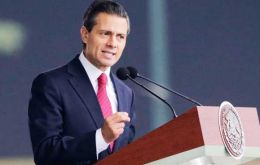
Mexican President Enrique Peña Nieto hailed US President Barack Obama's sweeping steps on immigration, saying they were “most important measures taken in several decades” and would allow families to stay together.
-
Saturday, November 22nd 2014 - 05:49 UTC
US Senate grills banks accused of 'unfair' trading practices with commoditisers
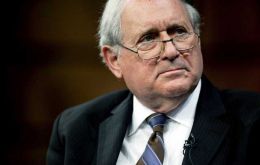
Executives of three US banks are being grilled by senators over accusations the banks engaged in unfair trading practices relating to several commodities. A two-year report found that Goldman Sachs, Morgan Stanley and JP Morgan Chase bought up large stockpiles of commodities like aluminum and copper.
-
Friday, November 21st 2014 - 06:59 UTC
Potential of US offshore oil and gas, according to American Petroleum Institute

Two new studies released by the National Ocean Industries Association (NOIA) and the American Petroleum Institute (API) show significant potential added energy and economic benefits to the United States if the Eastern Gulf of Mexico and the Pacific outer continental shelf (OCS) were opened to offshore oil and natural gas development.
-
Thursday, November 20th 2014 - 04:29 UTC
Fed minutes confirm reveal consensus on ending stimulus program
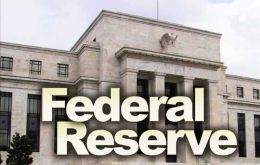
Although the US Federal Reserve was worried about turmoil in emerging markets, the central bank reached an easy consensus to end its stimulus program, its latest minutes reveal.
-
Tuesday, November 18th 2014 - 06:17 UTC
National Guard ready to act in Missouri waiting for jury decision on killing of black teenager
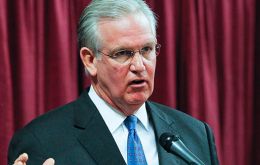
The governor of the US state of Missouri has activated the state's National Guard in anticipation of a grand jury decision over the killing of an unarmed black teenager. In a statement, Jay Nixon said the guard will “support law enforcement's efforts to maintain peace”.
-
Tuesday, November 18th 2014 - 06:02 UTC
Rousseff wants to improve ties with Washington, but hurdles and attitudes persist

Brazilian President Dilma Rousseff, who cancelled a White House trip last year in anger over U.S. spying revelations, now wants to improve ties and reschedule the state visit - but some U.S. officials warn it might not be that easy.
-
Friday, November 14th 2014 - 19:04 UTC
When Germany promised 'the return of Texas' if Mexico declared war on US
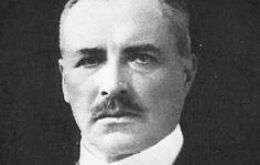
The United States of America entered World War I in April 1917 and it is widely believed that turned the tide of the conflict. The wartime leader was Woodrow Wilson, whose progressive accomplishments were significant between 1912 and his re-election in 1916.
-
Wednesday, November 12th 2014 - 06:48 UTC
US authorities looking into 'possible bribes' in the Petrobras corruption scandal

United States authorities are investigating whether Brazil's giant gas and oil corporation Petrobras or its employees were paid bribes, adding to the mounting domestic corruption probes facing the state-controlled oil company.
-
Tuesday, November 11th 2014 - 04:38 UTC
Released documents: Reagan's apologies to Thatcher over the invasion of Grenada

A recorded conversation between an apologetic Ronald Reagan and Margaret Thatcher over the invasion of Grenada has been published for the first time. Baroness Thatcher was angered that she was not consulted before the US invaded a Commonwealth state.
-
Monday, November 10th 2014 - 07:28 UTC
US Congress members support for Gibraltar's self determination

British Government is working with the US Congress in order to bolster support for Gibraltar’s right to remain under British sovereignty.
